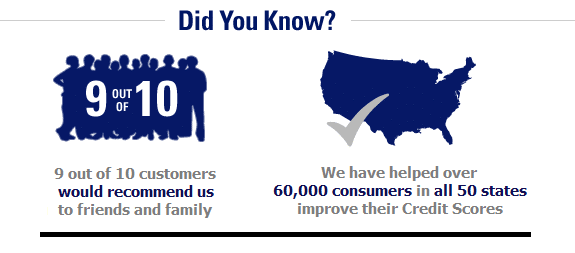Quick Credit Tips
Understanding your credit doesn’t have to be confusing. Here are 11 quick tips to help you understand your credit and get the most out of your credit scores.
Pay your bills on time
Derogatory information such as Late payments, Collections, and Charge-offs have a substantial negative impact on your credit scores.
If you have late payments
Catch up on your bills and pay them on time. Older delinquencies don’t have as much of an impact on your credit scores as much as new ones.
Pay all of your bills on time for 6 straight months and you will see your credit scores improve.
Also, don’t forget to contact the creditor reporting the late payment(s) directly and request a one-time goodwill removal of the delinquency.
Paying off a collection
Paying off collections won’t remove them from your credit reports and closing an account with late payments won’t remove the derogatory information either.
These past delinquencies will still factor into your credit scores.
If you’re having trouble paying your bills
Contact your creditors and set up payment plans that you can afford to catch up on your debt obligations.
It probably won’t help increase your credit scores right away but, if you can pay your bills on time your scores will improve.
Keep your credit card balances low
Maxing out your credit cards will lower your credit scores.
Try to keep the balance at or below a 20% credit utilization.
For example, if the credit limit on your credit card is $1,000 – try to keep the balance at $200 (20%) or less.
Don’t close your oldest accounts
Keeping your oldest accounts open and active lengthens your credit history and increases your credit scores.
Don’t open too many accounts at once
Opening a lot of account in a short period of time will lower your credit scores.
New accounts lower your credit scores by shortening your average age of open accounts and putting new inquiries on your credit reports.
Limit yourself to one credit application every six months.
Don’t rate shop for too long
If you’re planning on buying a house, car or getting a student loan, don’t shop around for too long.
Inquiries made within a week for an auto loan may appear separately but, all count as one inquiry when calculating your credit scores.
Same applies to mortgages and student loans.
If you’re going to shop around for the best price or interest rate, don’t drag it out and make a decision within a week.
Re-establish your credit
If you had to start over and close your accounts to get back on your feet, don’t forget to re-establish some credit by opening up a small credit card.
Paying this new account on time and maintaining a low balance will help show lenders that you have turned over a new leaf and increase your credit scores.
Check your credit
Checking your credit reports yourself through annualcreditreport.com and credit monitoring sites like Credit Karma will not lower your credit scores.
Limit your Inquiries
Only apply for and open new accounts as needed.
Too many inquiries will lower your credit scores.












